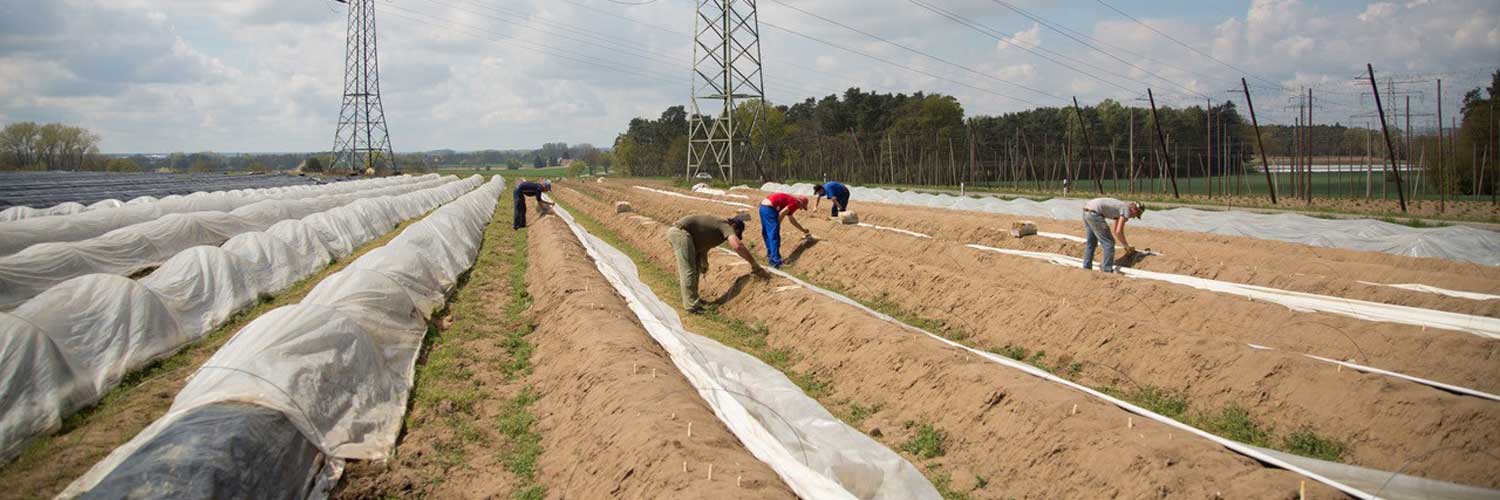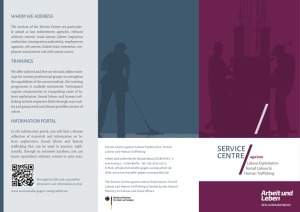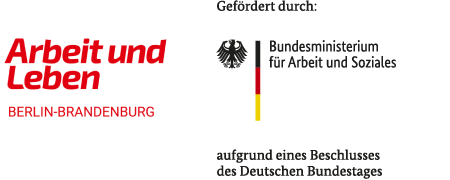WHAT WE DO
The Service Centre aims at strengthening and expanding public sector cooperation structures to address labour exploitation, forced labour and human trafficking. Consequently, expertise shall be built up amongst the responsible stakeholders. By providing information and raising awareness, the Service Centre contributes to achieving a better level of understanding within key stakeholders at the federal, state and municipal levels about exploitative working conditions.
The Service Centre focuses on the following activities:
- Stocktaking and documentation of state-specific regulations and activities related to prevention and protection of victims. This also includes areas of prosecution of labour exploitation, forced labour and human trafficking
- Providing trainings on legal frameworks, identification of victims and cooperation with relevant actors
- Providing practical information material on labour exploitation, forced labour and human trafficking through our internet-based information platform
- Promoting exchange at an international, national and regional level
The Service Centre coordinates with law enforcement authorities, trade unions, employers’ associations, work environment authorities, employment agencies, migration authorities, state ministries, advisory centres and civil society organisations in Germany.
OUR FOCUS
The International Labour Organisation estimates that 610 000 people are affected by severe labour exploitation and forced labour within the EU. This also applies to Germany. Migrants from other EU or third countries are especially at particular risk. The lack of knowledge about the local language or the legal system, limited access to the regular labour market and residential restrictions can foster situations of coercion into forced labour and exploitation. Some employers may take advantage of those aspects leading to poor work standards and enforcement of and exploitative working conditions.
There is a continuous need for action, also in Germany, in establishing a common understanding of the terminologies of ‘labour exploitation’, ‘forced labour’ and ‘human trafficking’. This is especially vital in the identification of victims and the provision of support, as well as ensuring effective prosecution. The October 2016 amendment to the German criminal law introduced an act to improve the fight against human trafficking1, making provisions that encourage further debate. The following offences are now enshrined in the German Criminal Code (StGB):
- § 232 StGB Human Trafficking
- § 232a StGB Forced Prostitution
- § 232b StGB Forced Labour
- § 233 StGB Labour Exploitation
- § 233a StGB Exploitation Taking Advantage of the Deprivation of Liberty





